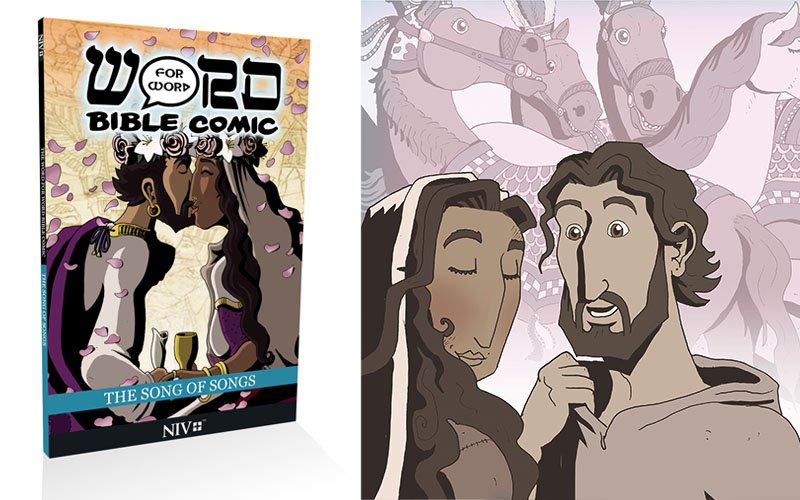Did Solomon the Write Song of Songs?
Scholars and historians love to question and challenge every detail of the Bible and some even question the authorship of this book. So what evidence supports the idea of Solomon as the author of this book?
For many the matter is put to bed in verse one: "Solomon’s Song of Songs."
However, the Hebrew term phrase “Song of Song of Solomon” is very complex and may be variously understood as "of/to/for/about Solomon". The title may therefore imply that Solomon wrote the poetry, that the poems were dedicated to him, or that the songs were composed about him. There is no definitive way of deciding between the four meanings. The most straightforward way to understand it seems to be that the author is identified within the text. However, some suggest the song is merely dedicated to Solomon and a later fabrication.
Dating: One interesting detail is that in verse 6:4, Solomon compares his bride's beauty to Jerusalem and Tirzah. Jerusalem is obviously the throne's seat of power during Solomon's day and Tirzah is another major city within his kingdom. However, shortly after Solomon's death, during the reign of his son Rehoboam, Tirzah was lost to David's line when the northern kingdom broke away from Judah after the people revolted against the heavy taxes levied by the new king. Tirzah became the early capital of the rebel state in the north and so it is scarcely conceivable that if a later Jewish author had written the book, that author would have referred to both Jerusalem and Tirzah in such favorable terms. Indeed, various locations in both the north and the south are referenced equally (Engedi, Hermon, Carmel, Lebanon, Heshbon etc), so from the internal evidence, the author seems to be unaware of a divided Kingdom, which strongly indicates a date that precedes the reign of Solomon's son.
Language: Scholars who try to advocate a later date for the Song of Songs, point to certain linguistic elements within the text that they claim are influenced by later Greek and Aramaic. However, the supposed Aramaic words have been proven to be part of much earlier text (Job, Judges etc). The alleged Greek words for "palaquin", (3:9) and "orchard" (4:13) in each case, could equally be derived from the contemporary Sanskrit from India. Solomon likely traded with India, given the references to spikenard and ivory.
Frame of reference: While it is not conclusive proof of Solomon’s authorship, throughout the song, there are references to and comparisons with truly rare and precious items. These include not only gold, silver and gemstones but ivory, cosmetic powders, spikenard, myrrh and frankincense. Many of which were imported from far-off countries. Also, Pharaoh's cavalry is referenced in verse 1:9, which ties in with the statement in 1 Kings 10:28 that "Solomon’s horses were imported from Egypt and from Kue —the royal merchants purchased them from Kue at the current price." all of this implies the author's familiarity with both royal luxuries and international trade.
In 1 Kings 4:32-33, it says of Solomon that "he spoke three thousand proverbs and his songs numbered a thousand and five. He spoke about plant life, from the cedar of Lebanon to the hyssop that grows out of walls. He also spoke about animals and birds, reptiles and fish." So not only was the King known for his many songs, he had a keen interest in the flora and fauna of the world. The Song of Songs refers to twenty-one varieties of plant life and fifteen types of animals, so both elements support the authorship of King Solomon himself.
For a more detailed breakdown of this discussion, please consult "A Survey of the Old Testament Introduction" By Gleason L. Archer.
—-
The Song of Song graphic novel is available now in our online store:




